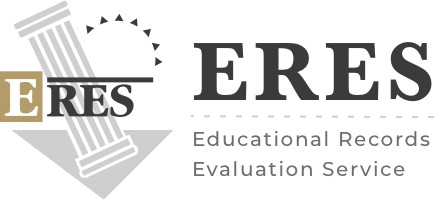Blog
The Importance of Understanding State-Specific Legal Requirements for Nursing in the USA

Nursing is a noble and essential profession that requires not only clinical skills but also a deep understanding of the importance of legal aspects in nursing. As a nurse, being aware of the legal implications of nursing practice that govern your profession is crucial.
You must understand and adhere to these legal obligations to ensure safe and legally sound care. This blog will delve into the significance of understanding these legal requirements. Learn how to become a nurse in the US and get insights into nursing regulations by state across the USA.
Nursing Licensure Requirements in the US
Licensure requirements for nursing in the US are determined at the state level, which means they can vary from state to state. However, there are common elements across most states. Generally, individuals aspiring to become registered nurses (RNs) must complete an approved nursing program, which can be a diploma, associate degree, or bachelor's degree in nursing.
After completing the nursing program, they must pass the National Council Licensure Examination for Registered Nurses (NCLEX-RN). Some states may have additional requirements, such as criminal background checks, fingerprinting, or specific coursework, so prospective nurses need to check the requirements of the state in which they plan to practice.
Scope of Practice for Nurses in the US
The scope of practice for nurses in the US is defined by each state's Nurse Practice Act and associated regulations. It outlines the specific duties, responsibilities, and limitations of registered nurses (RNs) and may also include provisions for advanced practice registered nurses (APRNs).
The scope of practice typically includes fundamental nursing tasks such as assessing patient conditions, developing care plans, administering medications, providing patient education, and collaborating with other healthcare professionals.
Advanced practice nurses may have additional responsibilities, such as diagnosing and treating illnesses, prescribing medications, and ordering diagnostic tests. The scope of practice is designed to ensure that nurses provide safe and effective care within their authorized roles.
Reporting Requirements for Nurses in the US
Nurses in the US have reporting obligations to protect the welfare of patients and maintain professional standards. Reporting requirements often encompass instances of suspected abuse, neglect, unethical conduct, or violations of the law.
The specific reporting obligations can vary by state but commonly include reporting to the appropriate authorities or agencies, such as state nursing boards or regulatory bodies. Nurses are typically required to report any knowledge or reasonable suspicion of such incidents to ensure the safety and well-being of patients and the integrity of the nursing profession.
Disciplinary Actions for Nurses in the US
You must know the state-specific legal requirements for nursing in the USA, as disciplinary actions for nurses who violate nursing laws or regulations are enforced by state nursing boards or regulatory bodies.
When complaints are filed against a nurse, the board or agency has the authority to investigate the allegations. The disciplinary process may involve a formal hearing where evidence is presented and evaluated. The board can impose various disciplinary actions based on the severity of the violation and its impact on patient safety and professional standards.
Common disciplinary actions include reprimands, fines, probation, suspension, or in severe cases, revocation of a nursing license. The purpose of disciplinary actions is to protect the public from incompetent or unethical nursing practice and maintain the nursing profession's integrity.
Understanding Common Law in Nursing - USA
It's important for nurses to be aware of and adhere to the licensure requirements, scope of practice, reporting obligations, and disciplinary procedures specific nursing regulations by their state. Nurses should consult their state's nursing board or regulatory agency to obtain comprehensive and up-to-date information regarding these matters.
Legal Implications of Nursing Practice in the USA
Legal implications of nursing practice in the USA refer to the potential legal consequences that nurses may face when delivering patient care. These implications arise from various sources, including federal and state laws, regulations, professional standards, and ethical guidelines. Here are some key aspects of the legal implications of nursing practice in the USA:
Here are some key aspects of the legal implications of nursing practice in the USA:
- Patient Safety and Quality of Care: Nurses have a legal duty to uphold patient safety and provide quality care. They must adhere to established standards of care, follow evidence-based practices, and exercise their professional judgment to prevent harm to patients. Failing to meet these obligations can lead to legal consequences, such as negligence claims or malpractice lawsuits.
- Scope of Practice: Nurses must practice within the legal boundaries of their defined scope of practice. Each state has its own Nurse Practice Act and regulations outlining the specific tasks, procedures, and responsibilities nurses are authorized to perform. Operating outside the scope of practice can result in disciplinary actions, loss of licensure, or legal liability.
- Documentation and Record-Keeping: Nurses must maintain comprehensive patient records that accurately reflect the care provided, including assessments, interventions, and outcomes. Incomplete or inaccurate documentation can lead to legal challenges, compromising the nurse’s credibility and potentially impacting patient care.
- Informed Consent: Nurses play a vital role in obtaining informed consent from patients before any medical intervention. They must ensure that patients clearly understand the proposed treatment or procedure, its potential risks and benefits, and any alternatives. Failing to obtain proper informed consent can result in legal claims of negligence or battery.
- Privacy and Confidentiality: Nurses are obligated to protect patient privacy and maintain the confidentiality of medical information in accordance with federal laws, such as the Health Insurance Portability and Accountability Act (HIPAA). Unauthorized disclosure of patient information can result in legal and ethical violations, leading to legal repercussions and damage to professional reputation.
- Mandatory Reporting: Nurses are legally required to report certain situations, such as suspected child or elder abuse, instances of neglect, or certain communicable diseases, to the appropriate authorities as mandated by state laws. Failure to fulfill mandatory reporting obligations can have legal consequences and may impede the protection of vulnerable individuals.
Nurses should stay updated on the legal and regulatory frameworks that govern their practice within their respective states. By practicing within legal boundaries, nurses can provide safe and effective care while minimizing the risk of legal challenges.
Nursing Practice Act in the USA
The Nursing Practice Act in the USA is a legislative framework that regulates the practice of nursing within each state. It establishes the legal requirements, scope of practice, and standards of care for registered nurses (RNs) and other licensed nurses. The act is designed to ensure patient safety, promote professional accountability, and govern the nursing profession.
It provides the authority and responsibilities of the state's nursing board or regulatory agency. The act includes provisions for licensure and certification, educational requirements, scope of practice, disciplinary actions, and other aspects that govern nursing practice within the state.
Legal Limits of Nursing Practice in the USA
The legal limits of nursing practice in the USA refer to the boundaries set by laws, regulations, and professional standards. Nurses must practice within their authorized scope of practice, comply with relevant laws and regulations, follow professional standards and guidelines, collaborate with the healthcare team, delegate and supervise appropriately, and maintain competence through continuing education.
The Bottom Line
If you have completed your nursing education outside the United States and need credential evaluation services for nursing for compliance with state-specific requirements, consider contacting Educational Records Evaluation Service (ERES) for reliable credential evaluation services. We can assist in determining the equivalency of your education and ensure you meet the necessary qualifications for nursing practice in your desired state.
To ensure compliance with state-specific nursing laws, you must familiarize yourself with the Nursing Practice Act and regulations applicable in your state. Take the time to thoroughly review and understand the requirements and restrictions outlined in the act. Stay informed about any updates or changes to nursing laws and regulations by regularly checking the website or contacting your state's nursing board or regulatory agency.
Start Now
ERES
Educational Records Evaluation Service helps Non-US educated individuals to receive their US equivalences with our credential evaluation reports.
Services
Contact us
Tue - Fri: 10:00 to 16:00 ( PST )
4773 Mangels Blvd, Fairfield, CA 94534, USA.
© 2025 Educational Records Evaluation Service. All rights reserved.











